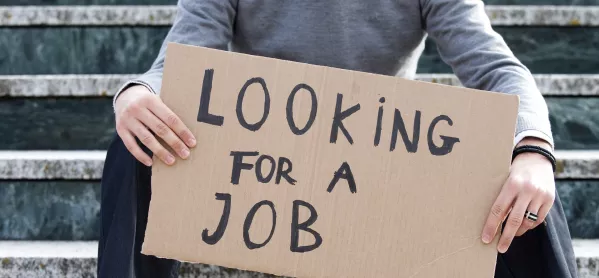- Home
- How rocketing unemployment damages children’s education
How rocketing unemployment damages children’s education

The Covid-19 crisis has had an immediate impact on children’s education through school closures and exam cancellations. But evidence shows that a child’s education suffers when a parent’s job becomes insecure or is lost.
As the UK went into lockdown, the numbers applying for universal credit, a type of income support, soared. Between 16 March and 31 March, 950,000 people applied for universal credit - usually around 100,000 applications would be received in a two-week period.
These numbers hint at an unprecedented number of job losses due to the Covid-19 crisis. Even for those who do not lose their jobs, feelings of job insecurity (ie, the fear of losing one’s job) are likely to become widespread. Further timely data from a representative UK survey carried out by researchers at Oxford and Cambridge universities shows that 33 per cent of respondents who still had a job on 25 March were expecting to lose their jobs within the next four months.
Research in economics has shown when someone loses their job, they not only suffer a loss of earnings in the short term but lower long-term earnings even after finding a new job. People who have lost their job also have prevalent feelings of job insecurity, and worse physical and mental health, and an increased risk of divorce. Moreover, people in insecure jobs (eg, fixed-term, temporary or zero-hour contracts), tend to have lower wages and lower levels of job satisfaction, as well as worse physical and mental health.
The impact of coronavirus on disadvantaged families
These negative consequences are likely to spill over on to other members of the household, in particular children. Using Spanish data, I have studied the impact of parental job loss and parental job insecurity on children’s educational outcomes. I found that the impact of a father’s job loss on their child’s average grade (across all subjects) is negative and statistically significant.
The size of the effect is such that in order to make up the impact of a father’s job loss on children’s achievement, we would need to reduce class sizes by around eight students in a 25-student class. I have also analysed the impact of parental job insecurity (measured by whether parents have a fixed-term versus a permanent contract) and found that children of job-insecure fathers are more likely to drop out of education at age 16, among other negative consequences.
Several explanations could be behind these results. For instance, lower levels of income associated with insecure contracts or job loss could affect the financial resources devoted to children’s education.
Additionally, work in social psychology has shown that children as young as 5 can develop clear perceptions of the world of work and parents’ job insecurity, and understand concepts such as pay, labour disputes, unemployment and welfare. Therefore, it could be difficult to isolate children from any negative consequences of insecure employment conditions or job loss on parents’ mental health. And if this is true under normal circumstances, it is likely to be even more the case in the present scenario with schools being closed for the foreseeable future and children being stuck at home.
Recent UK data from the survey mentioned above reveals that there are good reasons to believe that the crisis will hit some households harder than others - workers employed on less secure work arrangements were more likely to have lost their job in the past four weeks and attribute this to Covid-19.
The Institute for Fiscal Studies has also shown that low earners are seven times as likely as high earners to have worked in a sector that is now shut down (which, in turn, makes them more likely to lose their job). Families where the main earner is solo self-employed (ie, not employing anyone else), including gig economy workers, are also likely to suffer more - many earn little, and lack access to the traditional safety net, according to LSE research.
Most research points towards households already at a disadvantage being the ones that will be hardest hit by the economic consequences of the Covid-19 crisis, both in terms of actual job loss and job insecurity. It is important, therefore, that the right measures are put in place to prevent as many job losses as possible, and to minimise feelings of job insecurity.
It is only fair that we should try to shield already vulnerable children from potential permanent scars related to the negative impacts of their parent’s job loss or job insecurity on their educational outcomes.
Jenifer Ruiz-Valenzuela is a research economist at the Centre for Economic Performance, and the research coordinator of the Centre for Vocational Education Research at the London School of Economics
Keep reading for just £1 per month
You've reached your limit of free articles this month. Subscribe for £1 per month for three months and get:
- Unlimited access to all Tes magazine content
- Exclusive subscriber-only stories
- Award-winning email newsletters